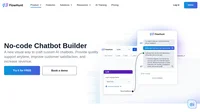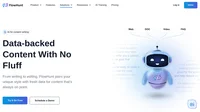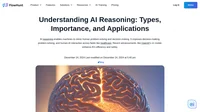Adaptive learning is a transformative educational method that leverages technology to create a customized learning experience for each student. This approach employs adaptive learning technology, incorporating artificial intelligence, machine learning, and data analytics, to assess a student’s unique learning needs and deliver tailored educational content. Unlike traditional educational methods that adopt a one-size-fits-all approach, adaptive learning provides personalized learning experiences that adjust in real-time to align with the student’s progress and comprehension.
Adaptive learning systems begin with a diagnostic phase to determine the student’s initial knowledge level. This might involve an upfront test or a series of interactions that help the system gather data on the student’s strengths and weaknesses. Based on these diagnostics, a personalized learning pathway is created, which includes both learning components—where new concepts are introduced or reinforced—and practice components, offering interactive exercises to test understanding and provide scaffolding support.
Adaptive Learning Technology
The technology behind adaptive learning encompasses a variety of tools and systems designed to facilitate personalized education. These systems generally include:
- Diagnostic Tools: These assess initial student knowledge to establish a starting point, ensuring that each learner’s journey is tailored from the beginning.
- Personalized Learning Pathways: These dynamically adjust the sequence of educational content to suit the learner’s specific needs, ensuring content is neither too difficult nor too easy.
- Feedback and Assessment: Real-time feedback mechanisms allow for continuous assessment, focusing on areas where the learner requires improvement and adapting the content accordingly.
Types of Adaptive Learning Technologies
- Machine-Learning-Based Systems: These use sophisticated algorithms to analyze learner data and dynamically adjust content to optimize learning outcomes.
- Advanced Algorithm Adaptive Systems: These systems evaluate learning paths and provide real-time feedback based on learner responses, ensuring a tailored educational experience.
- Rules-Based Adaptive Systems: These follow predefined rules to adapt content based on learner interactions, providing a structured but flexible learning environment.
Benefits of Adaptive Learning
Adaptive learning presents numerous benefits that enhance the educational experience:
- Personalized Learning: By customizing educational experiences to individual needs, adaptive learning enhances both engagement and comprehension.
- Self-Paced Learning: Learners can progress at their own speed, dedicating more time to complex subjects and less to areas they grasp quickly.
- Improved Engagement: By offering content that is both relevant and challenging, adaptive learning keeps students engaged, resulting in better retention and understanding.
- Scalability: Adaptive learning makes personalized education feasible for large groups, enabling institutions to offer individualized learning at scale.
- Data-Driven Insights: These systems provide educators with valuable data, allowing them to identify learning gaps and refine their instructional strategies.
Adaptive Learning Systems and Examples
Adaptive learning systems are utilized across various educational and corporate environments. Some notable examples include:
- K-12 Education: Platforms like Waggle and Amira offer personalized practice in subjects such as math and phonics, catering to diverse learning needs.
- Higher Education: Universities employ adaptive learning to enhance student engagement and improve outcomes in courses with large enrollments.
- Corporate Training: Companies like Merck implement adaptive simulations to deliver efficient, targeted employee training.
Use Cases of Adaptive Learning
Adaptive learning is applicable in numerous contexts:
- Education: In classrooms, it enables differentiated instruction, catering to students’ unique learning paths.
- Corporate Training: Businesses use adaptive learning to deliver personalized training programs that adapt to employees’ learning needs and skill levels.
- Online Learning: eLearning platforms benefit from adaptive learning by offering customized content and learning paths based on real-time performance data.
Challenges and Limitations
Despite its advantages, adaptive learning also faces several challenges:
- Algorithmic Bias: There is a risk of reinforcing existing biases if systems are not carefully designed and monitored.
- Instructor and Learner Buy-In: Successful implementation requires acceptance and understanding from both educators and students.
- Data Privacy: The handling of sensitive student data necessitates stringent privacy measures to protect learner information.
Future Implications
The future of adaptive learning holds significant promise for transforming education and training:
- Increased Accessibility: Technological advancements will make adaptive learning more accessible to a broader audience, including underrepresented groups.
- Enhanced Learning Outcomes: Continuous improvements in adaptive systems can lead to more effective educational outcomes.
- Integration with AI: Further integration with artificial intelligence could offer even more sophisticated personalization and predictive analytics, driving educational innovation.
Data-backed Content With No Fluff
Create data-driven content with FlowHunt’s AI tools. From idea generation to editing, streamline your process for engaging, SEO-optimized results!
Understanding AI Reasoning: Types, Importance, and Applications
Explore AI reasoning types, importance, and applications in healthcare and beyond. Discover how AI enhances decision-making and innovation.
Generative pre-trained transformer (GPT)
Discover how GPT revolutionizes text generation with AI, enhancing content creation, chatbots, and more. Explore its workings and applications!



